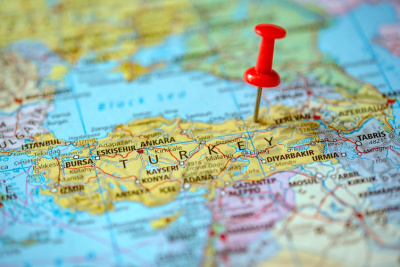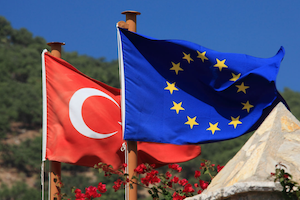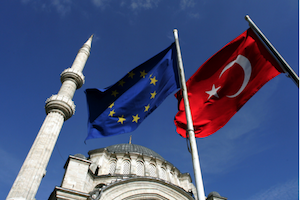The Reset of the Nation Alliance: Returning Turkey to the West
By Barçın Yinanç
March 9, 2022
The Nation Alliance reasserts Turkey’s place in the West and as a Western democracy. In case of victory, the Turkish opposition alliance will orchestrate a careful distancing from Russia and reset Turkey’s relations with its Western allies. What the main Turkish opposition alliance holds forth is a return to the decades-long principles of the Turkish republic that will be marking its centenary this year. These include, notably, the principle of non-interference in internal affairs of other nations. The opposition pledges to “put an end to practices based on domestic political calculations and ideological approaches in foreign policy.”

The Middle Corridor Calls for Turkish-European Cooperation
By Barçın Yinanç
January 17, 2022
While it was fear of Russia that prevented the Central Asian countries from showing an interest in the Middle Corridor, it is ironically the same Russian factor that has today led to the reinvigoration of this alternative to the Northern Corridor. However, crucially, the future of the Middle Corridor depends on European interest and particularly on the European Union revising its attitude toward Turkey that has been spearheading the project for more than a decade and that is indispensable to its realization. European decision makers must recognize that they need to join hands with Turkey to make the Middle Corridor come to fruition.

The EU and De-escalation in the Eastern Mediterranean
By Natalia Konarzewska
June 29, 2020
The discovery of new gas reserves in the region was expected to bring peace and prosperity to the Eastern Mediterranean littoral states but it has created new geopolitical and security risks instead. In April and May this year, Turkey continued with gas drilling within Cyprus' exclusive economic zone which drew new harsh criticism from the European Union. Turkey's assertive stance shows that Ankara is unlikely to abandon its pursuit for hydrocarbons in the region and that it will hence remain on a collision course with Greece and Cyprus. The EU would do well to seek de-escalation and should recognize that circumventing Turkey is not a viable strategy. Otherwise, there is a clear risk that the hydrocarbon dispute in the region will spiral out of control and lead to military confrontation.

New Tone, Old Substance: Erdoğans European Gambit
By Gareth H. Jenkins
September 10, 2018
The attempt by President Recep Tayyip Erdoğan to offset the fallout from the crisis in Turkey’s relations with the US by re-engaging with the EU is unlikely to persuade Brussels either to revitalize Turkey’s stalled accession process or to provide sufficient financial aid to prevent the country’s economy from sliding into recession. Although a softening in tone and an increase in dialogue raises the possibility of cooperation in areas of mutual interest, nor is there much prospect of the re-engagement leading to a significant easing in Erdoğan’s repressive rule.

Turkey yet to appear in Cyprus peace talks
By Ozan Serdaroğlu
September 14, 2016
The new round of Cyprus peace talks kicked off with high expectations. Both the Turkish and Greek leaderships are aware that a lot could be at stake if the process fails to yield an agreement. But the prospects for achieving the reunification of Cyprus, forty-two years after it was divided, have never been better. As energy games intensify in the region, Turkey is arguably more interested by concrete gains in this field, rather than insisting on prolonging a stalemate that has lasted for more than four decades. The Turkish and Greek Cypriot leaderships have overcome a significant psychological threshold, engaging in a permanent dialogue. However, they need to build more trust in matters concerning Turkey.





